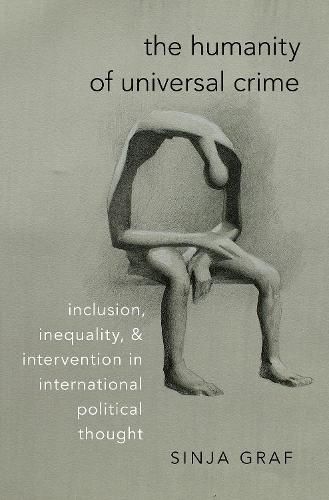Readings Newsletter
Become a Readings Member to make your shopping experience even easier.
Sign in or sign up for free!
You’re not far away from qualifying for FREE standard shipping within Australia
You’ve qualified for FREE standard shipping within Australia
The cart is loading…






The international crime of crimes against humanity has become integral to contemporary political and legal discourse. However, the conceptual core of the term–an act against all of mankind–has a longer and deeper history in international political thought. In an original excavation of this history, The Humanity of Universal Crime examines theoretical mobilizations of the idea of universal crime in colonial and post-colonial contexts. Sinja Graf demonstrates the overlooked centrality of humanity and criminality to political liberalism’s historical engagement with world politics, thereby breaking with the exhaustively studied status of individual rights in liberal thought. Graf argues that invocations of universal crime project humanity as a normatively integrated, yet minimally inclusive and hierarchically structured subject. Such visions of humanity have in turn underwritten justifications of foreign rule and outsider intervention based on claims to an injury universally suffered by all mankind. Foregrounding the political productivity of universal crime, the book traces the intellectual history of the rise, fall, and reappearance of notions of universal crime in political theory over time. It looks particularly at the way European theorists have deployed the concept in assessing the legitimacy of colonial rule and foreign intervention in non-European societies. The book argues that an inclusionary Eurocentrism subtends the authorizing and coercive dimensions of universal crime. Unlike much-studied exclusionary Eurocentrist thinking, inclusionary Eurocentrist arguments have historically extended an unequal, repressive recognition via liability to non-European peoples. Overall the book offers a novel view of how claims to act in the name of humanity are deeply steeped in practices that reproduce structures of inequality at a global level, particularly across political empires.
$9.00 standard shipping within Australia
FREE standard shipping within Australia for orders over $100.00
Express & International shipping calculated at checkout
The international crime of crimes against humanity has become integral to contemporary political and legal discourse. However, the conceptual core of the term–an act against all of mankind–has a longer and deeper history in international political thought. In an original excavation of this history, The Humanity of Universal Crime examines theoretical mobilizations of the idea of universal crime in colonial and post-colonial contexts. Sinja Graf demonstrates the overlooked centrality of humanity and criminality to political liberalism’s historical engagement with world politics, thereby breaking with the exhaustively studied status of individual rights in liberal thought. Graf argues that invocations of universal crime project humanity as a normatively integrated, yet minimally inclusive and hierarchically structured subject. Such visions of humanity have in turn underwritten justifications of foreign rule and outsider intervention based on claims to an injury universally suffered by all mankind. Foregrounding the political productivity of universal crime, the book traces the intellectual history of the rise, fall, and reappearance of notions of universal crime in political theory over time. It looks particularly at the way European theorists have deployed the concept in assessing the legitimacy of colonial rule and foreign intervention in non-European societies. The book argues that an inclusionary Eurocentrism subtends the authorizing and coercive dimensions of universal crime. Unlike much-studied exclusionary Eurocentrist thinking, inclusionary Eurocentrist arguments have historically extended an unequal, repressive recognition via liability to non-European peoples. Overall the book offers a novel view of how claims to act in the name of humanity are deeply steeped in practices that reproduce structures of inequality at a global level, particularly across political empires.